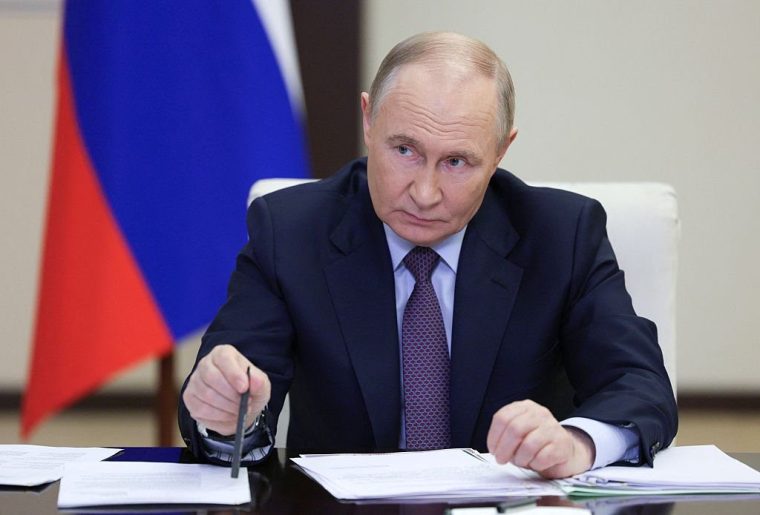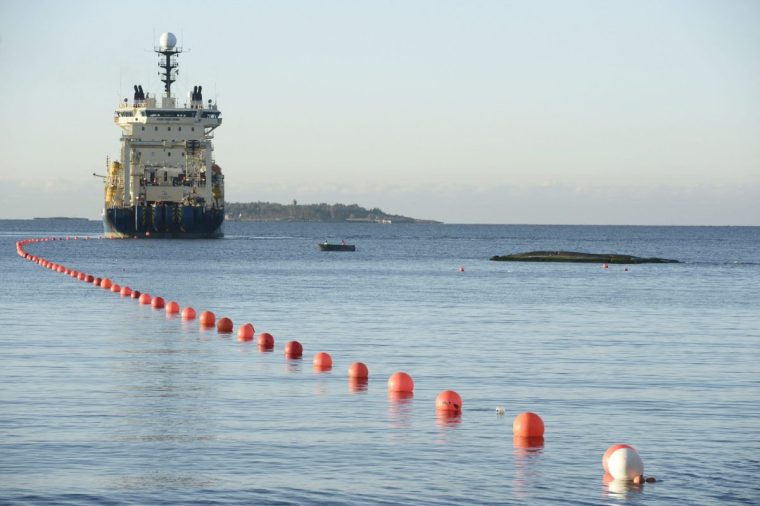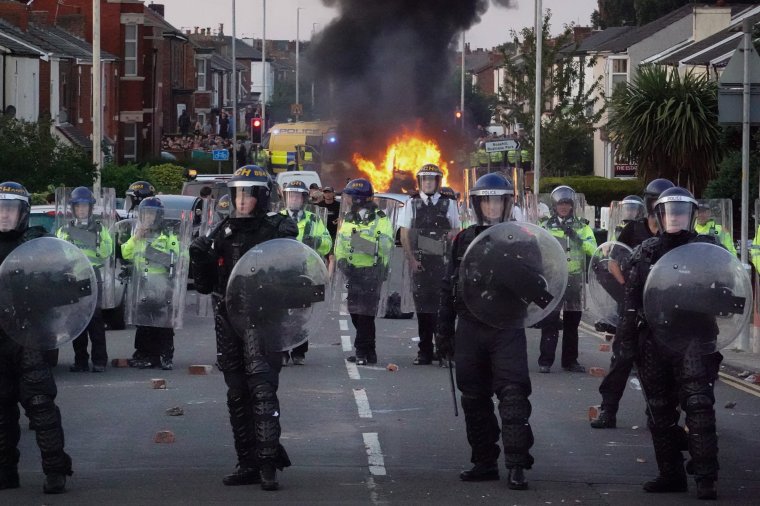Russia has threatened to use nuclear weapons, but experts say Moscow has far easier methods of harming the UK
Russian President Vladimir Putin has repeatedly hinted at using nuclear weapons against the West, sparking fear of an unthinkable nuclear disaster.
But experts warn that Russia is far more likely to use simpler methods to harm the UK, from cyber warfare to disinformation.
With the threat of escalating conflict in the Middle East and the Russia-Ukraine war showing no sign of resolution, Katja Bego, senior research fellow in international security at Chatham House, said that rhetoric around nuclear war could be “a little bit hysterical”.
“You can understand it, because the consequences of it would be unimaginable. But I think the actual likelihood of Russia turning this conflict nuclear, or in any way using nuclear weapons, is still still extremely low, for the very reason they know that would have devastating consequences in the other direction too.
“I think we really should see a lot of those threats more as posturing or kind of attempts to deter the west or Nato countries from helping Ukraine or taking other actions that Russia doesn’t like.”
Instead, Russia is turning to a playbook of disruptive acts which skirt just below the threshold for triggering all-out war.

“I think the hybrid stuff that we see is a much bigger issue than we even think,” Bego said.
These activities are aimed at sowing discord and polarisation in the West, undermining democratic processes and public trust, and even exacting economic costs from large cyber incidents.
This may be designed not only to weaken European countries but make their publics less inclined to support Ukraine and risk incurring Russia’s wrath
But they may also be laying the groundwork for something larger.
“I feel that this is also testing the waters a little bit and prepping for something larger. It could also be about finding out how Nato countries respond when they do something – will they act? How vulnerable are some of these systems?”
Cyber attacks
The UK has already been hit with a wave of cyber attacks, ranging from the 2017 Wannacry NHS attack which disrupted ambulance services in parts of the UK, to the ongoing M&S incident which has kneecapped one of the UK’s best known retailers.
The UK’s Cyber Security Centre revealed last month that Russia’s spy agency has been carrying out a “malicious cyber campaign against both public and private organisations since 2022”.
This has included targeting of organisations involved in the coordination, transport and delivery of support to Ukraine, and across the defence, IT services, maritime, airports, ports and air traffic management systems sectors in multiple Nato countries, it said.

Katja said that Russian cyber activity “going up year after year after year”.
“Crippling cyber attacks are also something we might not see sort of on a daily basis, but that’s it’s a significant risk that needs to be planned for,” she said.
“Sometimes, because it’s a bit complicated and a bit vague and feels not physical, people assume that that’s maybe not quite so bad. But I think that the NHS attack showed the impact these things can have. The risks to our infrastructure, I think, are large and maybe not quite as sort of present in the public consciousness as some of the other threats coming out of Russia.”
However, it can be tricky to trace.
“A lot of this might be coming from the state or kind of sanctioned by the state, but it’s not necessarily executed by state actors. You can see the Kremlin giving these criminal networks or proxy groups credit, a free hand to just do whatever.”
GPS
Modern British life is built on signals from satellites, which circle 20,000 km above the Earth and connect with devices on land to tell them where they are and what time it is.
Satellite data enable maps on mobile phones and in cars to work, tell ambulance services which vehicles can most quickly reach a patient and how they should get there, and facilitate global financial traders by helping to track commodities and monitor markets.

Global navigation satellite systems (GNSS) contribute £13.2bn to the British economy each year, a government assessment found, mostly from the emergency services and roads.
But experts warned that they are vulnerable to cyber attack or sabotage which could bring daily life to a standstill, halting transport networks from planes to trains, suspending maps and even damaging the power grid.
Sabotage
Russia is believed to be behind a wave of sabotage attacks on Western infrastructure in recent years.
The Centre for Strategic and International studies said that sabotage attacks had soared since the start of the Ukraine war, mostly targeting transport and government assets, critical infrastructure and defence companies. Many of the targets had links to Western aid to Ukraine.

The incidents range from stuffing car tailpipes with expanding foam to an attempt plant explosives on cargo planes, setting fire to stores and cutting undersea cables, AP found.
“There is a rising threat of Russia carrying out physical sabotage. Since the start of the war in Ukraine we’ve seen lot of that happening. You’re basically using either locals or hiring criminal networks or using shadowy structures to actually sabotage things in Nato countries.
Disinformation
Defence intelligence company Janes said the threat of Russian disinformation campaigns is “very high”.
“Russians have well-established working capabilities – multiple ‘troll factories’ and ‘web brigades’ – which were already tested in multiple scenarios, including election campaigns, organisation of protests, influencing the public opinion,” senior Russia analyst Alex Petric said.
“There is also intent – promoting a certain narrative in an adversary country.”
He listed Serbia as an example, where the Russian Foreign Intelligence Service has alleged that Serbia’s defence industry is supplying weapons to Ukraine, despite its official neutrality in the war.
Russian accounts already appear to have targeted the UK, stirring up disinformation after the Southport attack which led to rioting across the country.
Last year, the UK sanctioned a Russian group it said was using bots to spread disinformation.

And disinformation is very difficult to combat.
“When it comes to online information, we often don’t know immediately how something started, and can only do the autopsy after the fact when things have already escalated. But it’s very hard to put the genie back into the bottle and say that maybe was actually a sort of concerted campaign behind it. I think that’s a large threat,” Bego said.
“We should be careful to not attribute everything bad that happens on social media as a Russian campaign, but it is quite clear that they’re very active doing this and it’s been very effective in the UK and many countries around the world,” she added. “Maybe not everything they do quite works, but it works often.”
Soft power
Petric said Russia is likely to try to counteract Britain’s soft power towards, Russian citizens – such as the listing of the British Council as an undesired organisation in Russia earlier this month – and encourage its allies to do the same.
“On 5 June 2025, the spokesperson of Russian Ministry of Foreign Affairs Maria Zakharova stated that Russia will also warn its partner countries which are friendly to Russia, against activities of British Council on their territories,” Petric said.
